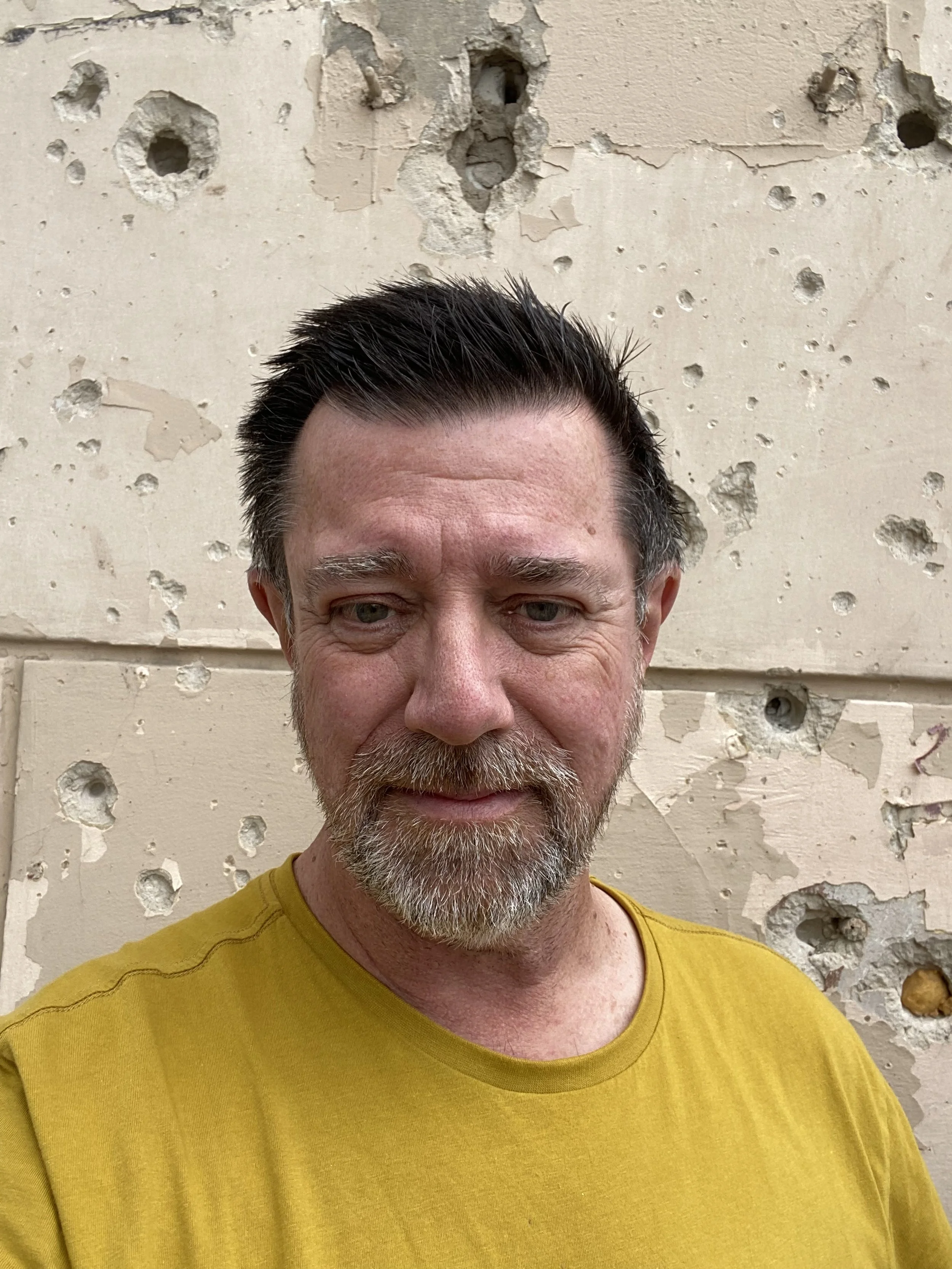On free speech in difficult times
By Professor John Hall
Illustration by Yana Samoylova, Illustrator
John Hall, who has a doctorate in modern history, is a professor at Fowler School of Law, where he teaches international law. He has carried out human rights work in many countries — most recently in Ukraine where he documented Russian war crimes.
Colleges and universities across the United States are attempting to better define the limits of acceptable free speech on campus, driven largely by the heated controversy surrounding the heartbreaking events in Gaza, the West Bank, Israel and now Lebanon. Chapman is not immune to this and has adopted a policy intended to establish guidelines regarding the protections granted to speech on this campus. This is a difficult process, a compromise that balances competing interests. For some it does not go far enough, for example by apparently protecting what is perceived by them as hate speech. For others it goes too far, in prohibiting certain forms of expression (such as an encampment, and the use of amplified sound).
Protecting free speech is a desperately difficult thing. It is uncomfortable. It is hard work. It is most definitely not the easy route. Let's face it, none of us instinctively want to listen to those with whom we strongly disagree, or who make us uncomfortable, let alone those we consider immoral, vindictive or even criminal.
The shocking events in the Middle East have super-heated the environment surrounding free speech on campus. Discourse between those who support Israel and those who support Palestine has become fraught with mutual anger, suspicion and distrust. Given the events, how could this not be the case, as much as we would wish it otherwise? How can we listen to those intent upon killing us? To those bombing our loved ones? To those intent upon our very destruction?
I spent several dozen nights in bomb shelters in Ukraine, as the Russians bombarded those cities with drones and missiles. I can assure you that neither I nor anyone else I met felt inclined to listen respectfully at that moment to Vladimir Putin's justifications for the war. There will be a time for thoughtful, respectful dialogue, but it is probably not now. While the bombs are falling, such dialogue is almost certainly aspirational rather than something to be expected.
What then of free speech on campus during this time of heightened distress, fear, anger and distrust? I believe that greater protection of free speech is necessary at such times, not less.
Some believe that free speech is perpetually guaranteed in the United States, that God sat at the elbow of Thomas Jefferson guiding his pen. Some argue for American exceptionalism, that freedom was built into the foundations of this nation. That seems to be both historically naive, and hopelessly misleading. Many countries protect free speech, though America was arguably the "firstest with the mostest." And far from being gifted or guaranteed, the First Amendment has been tested again and again by those wishing to limit its reach for political, racial or economic purposes.
Free speech in this country exists not safe in a display case or packed safely in an acid-free box. Rather, it is a rather flimsy barrier holding back the frequent storms and hurricanes of the greedy, stupid, vain and calculating. And that barrier needs to be vigilantly protected, invested in and strengthened generation after generation.
Despite lazy protestations about how much Americans value free speech, it seems to me more likely that most simply support protection for speech they agree with. Or, perhaps more accurately, most people support the easy speech, the non-threatening, the non-controversial, the polite and pleasant chat of society. But it is in the difficult speech that the protections are most needed, where the barrier is most vulnerable. It is the case that certain groups are being vilified, their speech at risk, while most of us stay silent. In our increasingly divided and limited political space, it is becoming more difficult to stand up for the "other." From there it is a short step to restricting unpopular speech.
In these difficult times, it is tempting to lose sight of the importance of aggressively protecting speech we hate. But this is a central component to free speech, the required balance. That heavy lifting requires us to protect the ability of those we most disagree with to speak without fear.
The threat to free speech today is very real, constant and dynamic. But the threat comes not just from the most obvious political blowhards. It comes, perhaps more dangerously, from the great majority of us who simply don't care or don't want to get involved.
Here is the big lesson. Free speech is not comfortable. It is not benign. It does not make us feel contented. There is no dopamine hit. It is hard, uncomfortable, demanding, exhausting. But if we do not vigilantly protect free speech, we will find ourselves living in yet another of the depressing autocratic nations where ease has won out over discomfort, where rights have been exchanged incrementally for supposed stability, and where only officially-sanctioned speech is tolerated. I've seen such places. Many of us have. Many of you have lived in those places or have families who fled from them. Those places are gray in the imagination, boring, oppressive and deeply unenviable spaces filled with people existing in shadows of fear and silence.
Better by far are those places that protect speech that is uncomfortable, offensive, difficult, colorful, passionate. A space that allows us to wave the flag of our own choosing. This is a big ask. It always has been. It requires that — as much as we may not want to — we defend the free speech rights of those we most disagree with. For, if they are silenced or chilled, however incrementally, then so are we all.
This article and accompanying media was submitted by an Chapman Law professor. If you are interested in having your work featured in The Panther, reach out to pantheropinions@chapman.edu.


